Related Research Articles

Erich Maria Remarque was a German-born novelist. His landmark novel All Quiet on the Western Front (1928), based on his experience in the Imperial German Army during World War I, an international bestseller which created a new literary genre of veterans writing about conflict. The book was adapted to film several times. Remarque's anti-war themes led to his condemnation by Nazi propaganda minister Joseph Goebbels as "unpatriotic." He was able to use his literary success and fame, to relocate to Switzerland as refugee, and to the United States, where he became a Naturalized citizen.

Samson and Delilah, Op. 47, is a grand opera in three acts and four scenes by Camille Saint-Saëns to a French libretto by Ferdinand Lemaire. It was first performed in Weimar at the Grossherzogliches Theater on 2 December 1877 in a German translation.

Samson was the last of the judges of the ancient Israelites mentioned in the Book of Judges and one of the last leaders who "judged" Israel before the institution of the monarchy. He is sometimes considered as an Israelite version of the popular Near Eastern folk hero also embodied by the Sumerian Gilgamesh and Enkidu, as well as the Greek Heracles. Samson was given superhuman powers by God in the form of extreme strength.

Ze'ev Jabotinsky was a Revisionist Zionist leader, author, poet, orator, soldier, and founder of the Jewish Self-Defense Organization in Odessa.

Samson and Delilah is a 1949 American romantic biblical drama film produced and directed by Cecil B. DeMille and released by Paramount Pictures. It depicts the biblical story of Samson, a strongman whose secret lies in his uncut hair, and his love for Delilah, the woman who seduces him, discovers his secret, and then betrays him to the Philistines. It stars Victor Mature and Hedy Lamarr in the title roles, George Sanders as the Saran, Angela Lansbury as Semadar, and Henry Wilcoxon as Prince Ahtur.
In the Hebrew Bible, a nazirite or a nazarite is a man or woman who voluntarily took a vow which is described in Numbers 6:1–21. This vow required the nazirite to:

Delilah is a woman mentioned in the sixteenth chapter of the Book of Judges in the Hebrew Bible. She is loved by Samson, a Nazirite who possesses great strength and serves as the final Judge of Israel. Delilah is bribed by the lords of the Philistines to discover the source of his strength. After three failed attempts at doing so, she finally goads Samson into telling her that his vigor is derived from his hair. As he sleeps, Delilah cuts Samson's hair, thereby enabling her to turn him over to the Philistines.
The Holy Bible in Modern English, commonly known as the Ferrar Fenton Bible, was an early translation of the Bible into English as spoken and written in the 19th and 20th centuries.
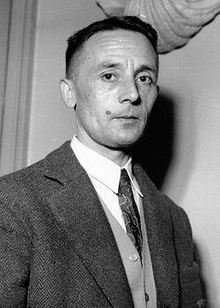
Julien Gracq was a French writer. He wrote novels, critiques, a play, and poetry. His literary works were noted for their dreamlike abstraction, elegant style and refined vocabulary. He was close to the surrealist movement, in particular its leader André Breton.
Eric Robert Russell Linklater CBE was a Welsh-born Scottish poet, fiction writer, military historian, and travel writer. For The Wind on the Moon, a children's fantasy novel, he won the 1944 Carnegie Medal from the Library Association for the year's best children's book by a British subject.
Hans Dreier was a German motion picture art director. He was Paramount Pictures' supervising art director from 1927 until his retirement in 1950, when he was succeeded by Hal Pereira.
Nazir is a treatise of the Mishnah and the Tosefta and in both Talmuds, devoted chiefly to a discussion of the laws of the Nazirite laid down in Numbers 6:1-21. In the Tosefta its title is Nezirut ("Nazariteness"). In most of the editions of the Mishnah, this treatise is the fourth in the order Nashim, and it is divided into 9 chapters, containing 48 paragraphs in all.
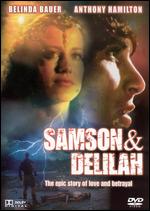
Samson and Delilah is a 1984 television film adaptation of the biblical story of Samson and Delilah directed by Lee Philips and starring Max von Sydow, Belinda Bauer, Antony Hamilton, Daniel Stern and Victor Mature. Mature played Samson in the 1949 film and had a small cameo as the father of Antony Hamilton's Samson. This was his final acting role. Based on the 1962 novel Husband of Delilah by Eric Linklater, Samson and Delilah originally aired on ABC.
"Sam and Delilah" is a song composed by George Gershwin, with lyrics by Ira Gershwin. It was introduced by Ethel Merman in the 1930 musical Girl Crazy. The song is an interpretation of the biblical story of Samson and Delilah in the Book of Judges of the Hebrew Bible.
Samson was a character in the Biblical Book of Judges. He is said to have been raised up by God to deliver the Israelites from the Philistines. In the story, God grants him unusual strength, which is facilitated by a Nazirite vow prohibiting him from cutting his hair. His strength and violent temper are illustrated in several colorful stories portraying him as dominant over man and nature. He also succeeds in his charge to battle the Philistines, more through acts of personal vengeance than by any formal military strategy. Eventually the Philistines defeat him by bribing his new love interest, Delilah, into extracting from him the secret to his strength. Once learned, the Philistines cut his hair while he sleeps, at which point he is easily defeated.
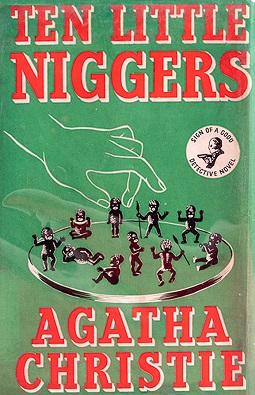
And Then There Were None is a mystery novel by the English writer Agatha Christie, who described it as the most difficult of her books to write. It was first published in the United Kingdom by the Collins Crime Club on 6 November 1939, as Ten Little Niggers, after an 1869 minstrel song that serves as a major plot element. The US edition was released in January 1940 with the title And Then There Were None, taken from the last five words of the song. Successive American reprints and adaptations use that title, though American Pocket Books paperbacks used the title Ten Little Indians between 1964 and 1986. UK editions continued to use the original title until 1985.

The Blinding of Samson is a 1636 painting by Rembrandt, now in the Städel. The painting is the first of its kind in pictorial tradition. No other artist at the time had painted this specific narrative moment.
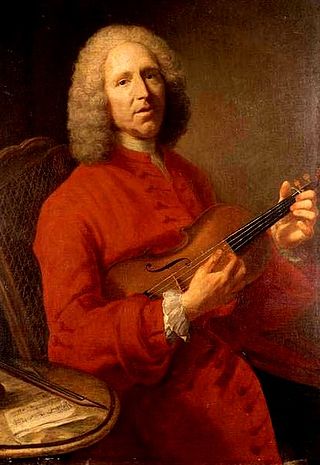
Samson was an opera by the French composer Jean-Philippe Rameau with a libretto by Voltaire. The work was never staged due to censorship, although Voltaire later printed his text. Rameau intended the opera on the theme of Samson and Delilah as the successor to his debut Hippolyte et Aricie, which premiered in October 1733. Like Hippolyte, Samson was a tragédie en musique in five acts and a prologue. Voltaire had become a great admirer of Rameau's music after seeing Hippolyte and suggested a collaboration with the composer in November 1733. The opera was complete by late summer 1734 and went into rehearsal. However, a work on a religious subject with a libretto by such a notorious critic of the Church was bound to run into controversy and Samson was banned. An attempt to revive the project in a new version in 1736 also failed. The score is lost, although Rameau recycled some of the music from Samson in his later operas.

Samson is a 2018 South African-American Biblical drama film directed by Bruce Macdonald and inspired by the story of Samson in the Book of Judges. The film stars Taylor James as Samson, along with Jackson Rathbone, Billy Zane, Caitlin Leahy, Rutger Hauer, and Lindsay Wagner. The film was released in the United States on February 16, 2018. It was negatively reviewed by film critics and was a box office bomb.
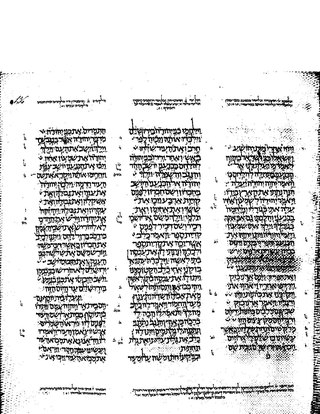
Judges 16 is the sixteenth chapter of the Book of Judges in the Old Testament or the Hebrew Bible. According to Jewish tradition the book was attributed to the prophet Samuel, but modern scholars view it as part of the Deuteronomistic History, which spans in the books of Deuteronomy to 2 Kings, attributed to nationalistic and devotedly Yahwistic writers during the time of the reformer Judean king Josiah in 7th century BCE. This chapter records the activities of judges Samson. belonging to a section comprising Judges 13 to 16 and Judges 6:1 to 16:31.
References
- ↑ Grossman, David (2007). Lion's Honey: The Myth of Samson. Canongate U.S. p. 147. ISBN 9780802197719.
- ↑ Davis, Elmer (February 2, 1930). "Samson". New York Herald Tribune– via Proquest.
- ↑ "V. Jabotinsky's Novel 'Samson' Is Reprinted". The Detroit Jewish News. September 21, 1945.
- ↑ Schechtman, Joseph (1961). Fighter and Prophet: The Vladimir Jabotinsky Story. p. 528.